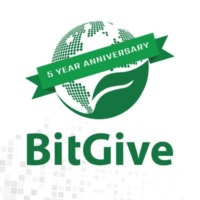In June 2018, Nobel prize-winning economist Robert Shiller made headlines in the cryptocurrency world when he called Bitcoin a “remarkable social phenomenon” during an interview with Bloomberg.
While Shiller’s views on cryptocurrency aren’t exactly positive, his description of it as a “social movement” and “epidemic of enthusiasm” isn’t very far off.
The reality is that Bitcoin’s ethos is very much different from the etho (if you can even call it that) of fiat currency, and that Bitcoin ethos has gained more than a few enthusiastic proponents over the past decade.
Fiat currency is a system built on the citizens’ trust in their “benevolent” governments.
Bitcoin, meanwhile, is something much different.
It’s built off the idea that trusting humans in power to be benevolent is always a losing battle, and that taking that power away from banks and governments will benefit the whole of society.
Unfortunately, many — perhaps even most — cryptocurrency projects that have been created since Bitcoin don’t fully share in that core ethos.
For example, countless projects seem to have been started primarily to enrich their creators, with no intention of providing value to society in the process.
But now that funding is drying up for blockchain startups, the time is ripe once again to focus on the principles that Bitcoin and the entire cryptocurrency ecosystem was founded upon: features like transparency, censorship resistance, and low-cost global transactions for everybody.
With that in mind, we’re going to look at some nonprofit companies in the cryptocurrency world that are committed to furthering that core ethos that started with Bitcoin.
As is the case with governments, some nonprofits act more benevolently than others.
No doubt more than one nonprofit has been founded with the intention of avoiding US securities laws or paying less taxes. However, that’s not the case with the ones on this list.
These are genuine, ethos-driven organizations that aspire to use their solutions to improve society in the long term.
So, let’s get to it.
4 Nonprofit Companies in the Cryptocurrency World
BitGive

What better place to start things off than with the world’s first ever Bitcoin and blockchain nonprofit charity organization, BitGive, which was founded back in 2013.
BitGive is a registered 501(c)3 nonprofit in the US that leverages blockchain technology to improve the charity world in a couple of key areas:
- Transparency: Many nonprofits are overly bureaucratic, ineffective, or even corrupt, which results in donor funds being poorly managed. By tracking charitable transactions on the blockchain, BitGive brings greater transparency to the financial operations of nonprofits. In turn, this makes it possible for donors to hold nonprofits accountable to a much higher degree.
- Efficiency: Charity transactions quite often involve sending money across borders from wealthy areas to impoverished ones. Unfortunately, the fact that these transactions are charity related doesn’t make them exempt from international transfer fees and long processing wait times. With cryptocurrencies, these international transfers can occur in seconds, and for a tiny fraction of the cost of old banking infrastructure. This means that more of the money that’s donated to charity actually gets to its intended destination, and less of it gets put aside for middlemen and administrative costs.
In its 5-year history, BitGive has focused predominantly on improving public health and general environmental health/sustainability.
They’ve partnered with some noteworthy nonprofits including Save the Children, The Water Project, and Medic Mobile, among others — helping with disaster relief, constructing housing in impoverished communities, building clean water wells in Kenya, and more.
Additionally, BitGive has just launched a new platform called GiveTrack at the Latin American Bitcoin and Blockchain Conference in Santiago, Chile during the first week of December.
GiveTrack is a donation platform that enables fundraising without borders along with faster, cheaper, and more transparent money management for nonprofits.
With BitGive and others leading the way, blockchain has slowly but surely begun to transform the global nonprofit sector for the better.
Zcash Foundation

Shifting from a nonprofit built on blockchain technology to a nonprofit that’s building blockchain technology, our next organization is the Zcash Foundation.
The Zcash Foundation is a 501(c)3 nonprofit that’s dedicated to the cause of developing payment and privacy infrastructure for the internet and serving the users of the Zcash privacy cryptocurrency.
There are actually 2 organizations closely involved with Zcash’s development and community growth: the Zcash Foundation and the Zerocoin Electric Coin Company (ZEC) led by Zooko Wilcox.
Where the latter is a private company dedicated to the development of the Zcash protocol and blockchain, the former is a public charity that works on 3 main initiatives:
- Community Growth: Focusing on spreading awareness of Zcash and the benefits of/need for private online transactions, as well as facilitating production conversations within the community to help determine the best actions to take for the future of Zcash.
- Protocol and Governance: Developing and maintaining the Zcash protocol and the open network it powers so that it can continue to provide financial privacy to the public.
- Research and Development (aka Science): Encouraging scientific research (i.e. validation, empirical measurement, and continued innovation and refinement) in the future development of Zcash, as well as educating the public about the importance of the Zcash Foundation’s mission.
As described in an excellent June article from Leigh Cuen at CoinDesk, the Zcash Foundation is primarily concerned with bringing privacy and fungibility technology to global payment systems, regardless of whether or not it’s the Zcash cryptocurrency itself that gains the most adoption and market cap in the process.
That being said, the Zcash Foundation gets its funding from a fixed 1.44% share of all the ZEC that’s mined, so it’s in the best interest of the foundation to see ZEC succeed.
Still, they haven’t shied away from collaborating with leaders of supposedly “competing” cryptocurrencies where it can help in their mission of making that private internet payment infrastructure a reality for everybody around the globe.
It’s still young, having just been founded in 2017, but thus far the Zcash Foundation has set a solid example for transparency and open governance that the rest of the cryptocurrency industry can look to.
Swarm

With most blockchain nonprofits, the cryptocurrency comes first and the nonprofit afterwards.
In the case of Swarm, however, it’s the opposite. Considerable efforts have gone into its organizational design, so that it can effectively serve the foundational purpose and be resilient to environmental changes.
Swarm was initially launched as a membership network in the summer of 2014 with the mission of developing smart contracts that could improve trust, transparency, and accessibility of financial infrastructure.
All together, these initiatives amount to one thing: democratizing finance.
With this huge goal in mind, the Swarm organization has been operating since 2016 as an unincorporated nonprofit association.
They quickly established relationships with multiple entities to focus on the hard work of improving regulations in the private equity space:
- Swarm Foundation, based in Liechtenstein
- Swarm Operations, GMBH based in Germany
- Swarm Operations, LLC based in the USA
- Swarm IP, based in Singapore
- Swarm Research Foundation, based in Panama
- Quantum Holonic Swarm Systems, based in the USA
These 6 groups are independent of the Swarm organization.
The Swarm organization is governed by the SWM token holders and determines together which entity to use to advance its goals.
All together, this form of collaboration has been described as a Distributed Collaborative Organization, with each part working to create robust token-governance systems and to integrate tokenized securities into the legal and tax systems of respective nation states.
The Swarm Organization is organizationally independent of any entity that may use the Swarm platform to tokenize their securities.
Token issuers on Swarm have been operating special purpose vehicles (“SPVs”) that hold the underlying assets in different jurisdictions, such as the Cayman Islands, Estonia, Lichtenstein, etc.
Democratizing investment and disrupting the private equity sector is not an easy undertaking, and it certainly doesn’t happen overnight.
Knowing that, Swarm’s operation as a nonprofit allows it to prioritize sustainable, long-term strategies that can make a deep impact rather than being forced into shortsighted actions for the sake of profit.
Further, it leads to clarity for participants in the network by ensuring neutrality of the platform. By mandate, Swarm is not incentivized to compete with the very same players who are adopting the infrastructure.
At present, the Swarm Organization council has 2 members and 3 seats waiting to be filled.
The project’s co-founders, Philipp Pieper and Timo Lehes, are the 2 active members, while the remaining spots will be filled via stakeholder votes using Swarm’s Liquid Democracy Voting Module (LDVM) with the SWM token.
Commit Good

We have to bend the rules a bit with this last inclusion, but it’s worth it.
Commit Good is a reward-based charity marketplace, fundraising platform, and philanthropic ecosystem on the Ethereum blockchain.
The reason we’re bending the rules is that Commit Good is not itself a nonprofit, but rather a platform that supports a network of 300+ charitable and nonprofit organizations, including Habitat for Humanity, Ronald McDonald House, Feed the Children, and so many others.
In an interview with TechBullion last August, Commit Good CEO Clay Braswell said:
The charitable space is going to be one of the early success stories that will enable mainstream user adoption [of cryptocurrencies]. The blockchain offers a new level of transparency that will benefit both donor and receiver and become the industry standard for charitable giving.
If you give this statement some thought, you’ll likely see the truth behind it.
What industry relies more on trust than the charity and nonprofit industry?
It’s literally dependent on getting people to donate and say: Here’s my money, I trust you to use it for the cause I’m donating towards.
Whether the cause is feeding the hungry, housing the homeless, or treating the sick, people don’t donate to charity in order to line the pockets of executives.
People donate to charity to make a difference.
But the sad reality today is that nonprofits are not held accountable to do the most good that they can with the donations they receive, and the most needy members of society suffer as a result.
Trust and transparency are two things that blockchain can bring to the nonprofit sector, which could completely revolutionize how charities operate and how much of a difference they make in the world.
Commit Good is just one of many organizations working to make that a reality, and you might well start seeing the impact of this work in most other industries that blockchain stands to disrupt in the years ahead.

